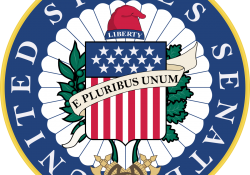Agenda of 10th Round ACTA negotiations, August 16-20, Washington DC
USTR will host the next round of ACTA negotiations that will take place all of next week, August 16-20, in Washington DC. According to USTR yesterday, the negotiators “expect to cover all issues” and the agenda would be made available in a day or so.
Here is a proposed agenda that we have obtained from another source.
ANTI-COUNTERFEITING TRADE AGREEMENT (ACTA)
PROPOSED AGENDA
10th Round of Negotiations
August 16th-20th, 2010, Washington, DCACTA’s Washington DC conclave: Is this Round 10?
According to an informed source, USTR intimated that next week’s ACTA meeting in Washington DC will be attended by all the negotiating parties and that discussions would include all issues under consideration in ACTA. We are still awaiting a response from USTR regarding the attendees, scope and purpose of the meeting but this new information seems to be indicative of nothing short of the next ACTA round.
Earlier, US government officials had informed that the an intersessional meeting would be held the week of 16 August in Washington DC.
Continue ReadingWHO releases names of experts and advisor to the Emergency Committee concerning Influenza Pandemic (H1N1) 2009
WHO has released the ‘List of Members of, and Advisor to, the International Health Regulations (2005) Emergency Committee concerning Influenza Pandemic (H1N1) 2009‘ at the following site: http://www.who.int/ihr/emerg_comm_members_2009/en/. Of the 15 members and one advisor, 6 had declaration of interests. On this matter, WHO had the following statement:
Letter to President of Mexico regarding ACTA
The following is an August 10, 2010 letter written by Alberto Cerda Silva, a Research Associate of Knowledge Ecology International, to Felipe Calderón Hinojosa, Presidente Constitucional de los Estados Unidos Mexicanos, regarding the position of the Mexican government in the ACTA negotiations.
The US Orphan Drug Tax Credit
From the FDA page on the Orphan Drug Tax Credit. Incentives TAX CREDIT (See Footnote 1 below) FOR TESTING EXPENSES FOR DRUGS FOR RARE DISEASES OR CONDITIONS Introduction Section 45C of the Internal Revenue Code of 1954 allows a credit… Continue Reading
Notes on the 2004 to 2009 United States Food and Drug Administration Approval of New Molecular Entities (NMEs)
(Cite as Molly Redfield Ward, Notes on the 2004 to 2009 United States Food and Drug Administration Approval of New Molecular Entities (NMEs), KEI Research Note 2010:3) A PDF version of this document is available here. Notes on the 2004… Continue Reading
Notes and data points for prices of orphan products
February 22, 2010., Matthew Herper, “The World’s Most Expensive Drugs,” Forbes. Genzyme’s web page on the cost of treatment. Some data points on Fabrazyme prices. 2004 prices for Replagal 2001 prices for Cerezyme. Myozyme/Lumizyme A 2007 Canadian analysis of (50… Continue Reading
Written submission U.S. Senate Committee on Health, Education, Labor, and Pensions (HELP) Hearing on Treating Rare and Neglected Pediatric Diseases: Promoting the Development of New Treatments and Cures
Written submission U.S. Senate Committee on Health, Education, Labor, and Pensions (HELP) Hearing on Treating Rare and Neglected Pediatric Diseases: Promoting the Development of New Treatments and Cures, On the topic of Direct funding, subsidies and incentives for the development… Continue Reading
Summary Report of WIPO’s expert group deliberations on a sui generis legal regime to protect folklore
WIPO’s First Intersessional Working Group (IWG 1) concluded its five days of deliberations on Friday, 23 July 2010 substantially closer to its goal of establishing a sui generis legal regime for the protection of traditional cultural expressions/expressions of folklore. On Friday, the WIPO secretariat distributed a summary report of the first IWG (attached below). Continue Reading
WIPO drafting groups release text for a possible legal instrument for the protection of traditional cultural expressions
As mentioned in two previous KEI blogs, the WIPO’s First Intersessional Working Group received its mandate from the 16th WIPO Intergovernmental Committee on Intellectual Property and Genetic Resources, Traditional Knowledge and Folklore (IGC) to ‘provide legal and technical advice and analysis, including, where appropriate, options and scenarios for consideration of the IGC’ including the outcomes, recommendations and texts relating to the discussion specifically on a working document containing draft provisions for a possible instrument for the protection of traditional cultural expressions/e Continue Reading
